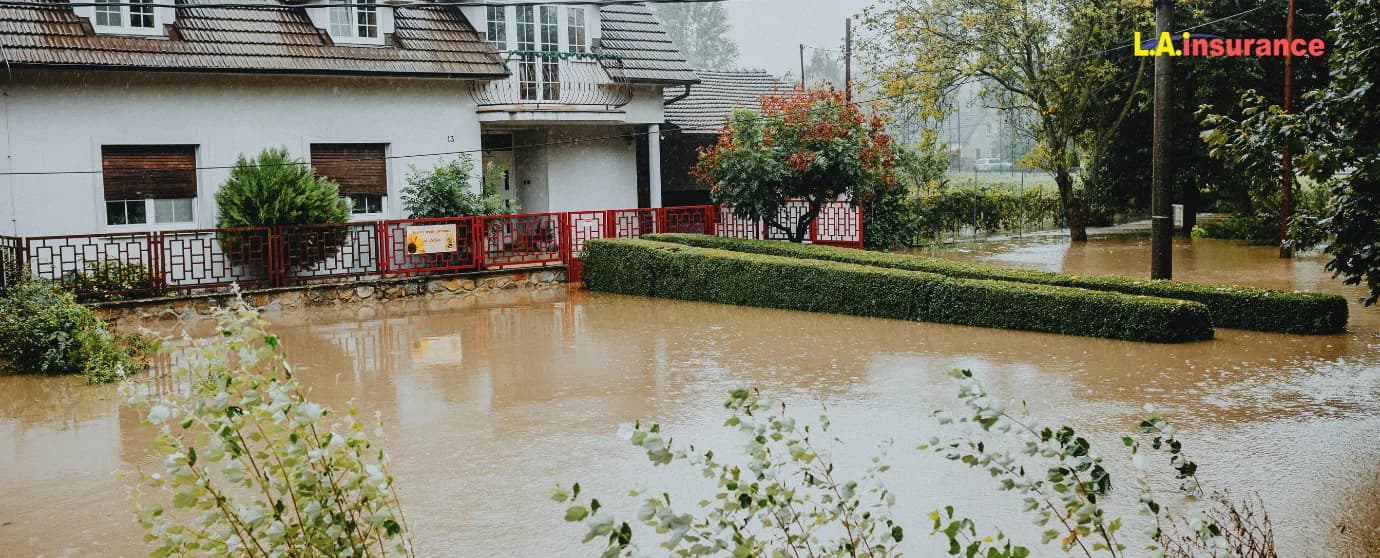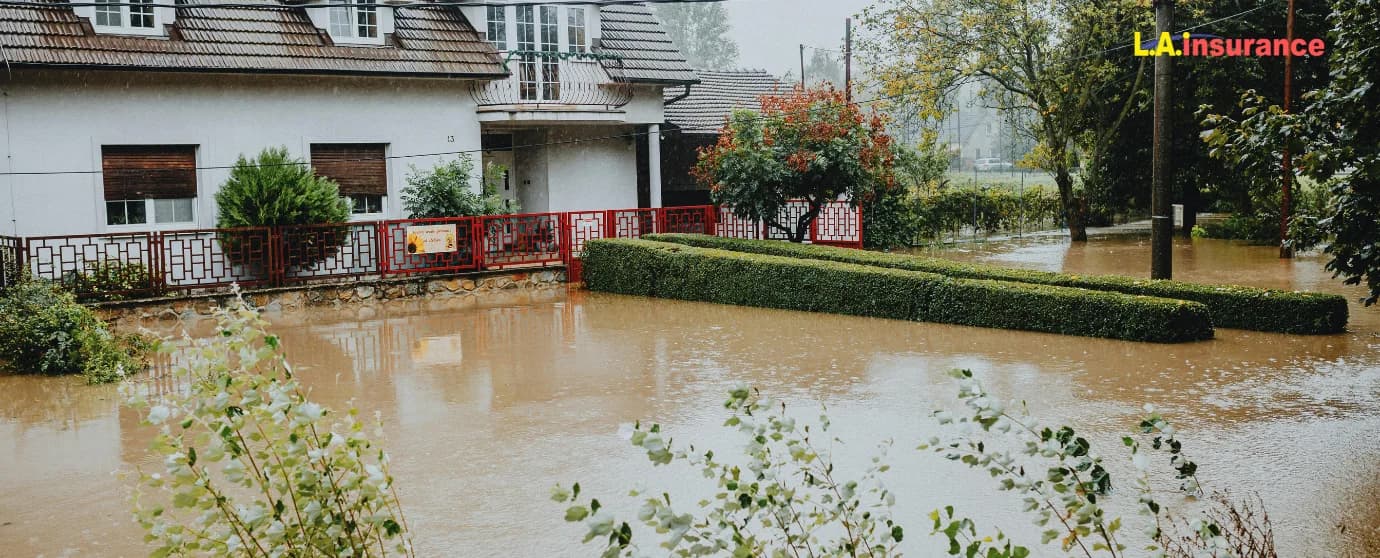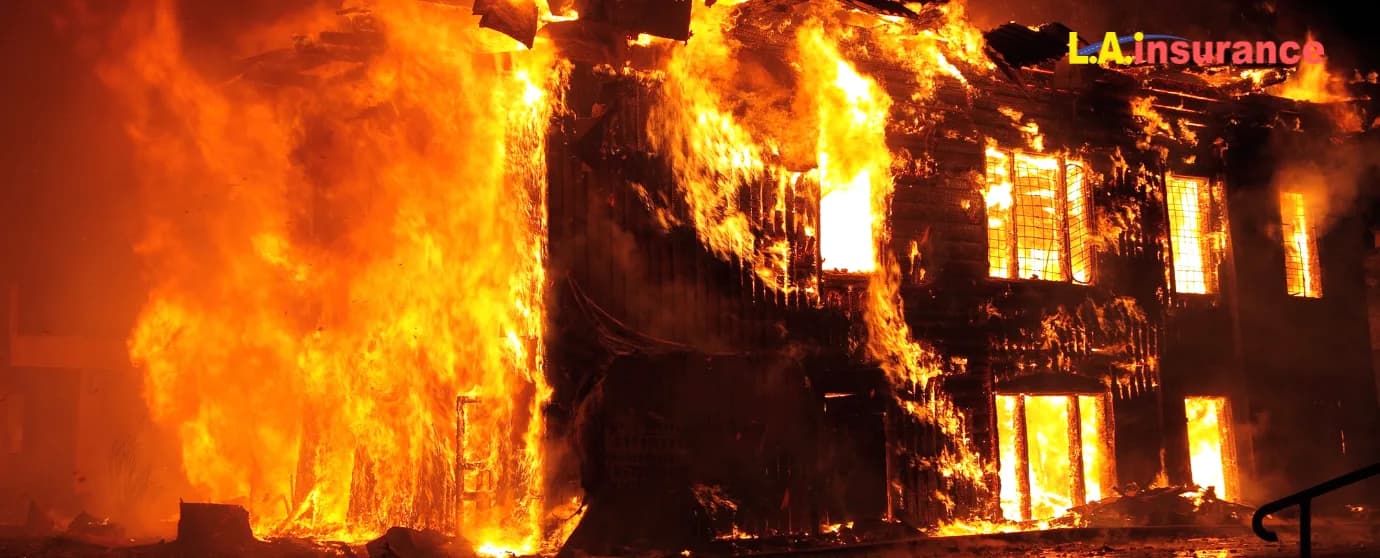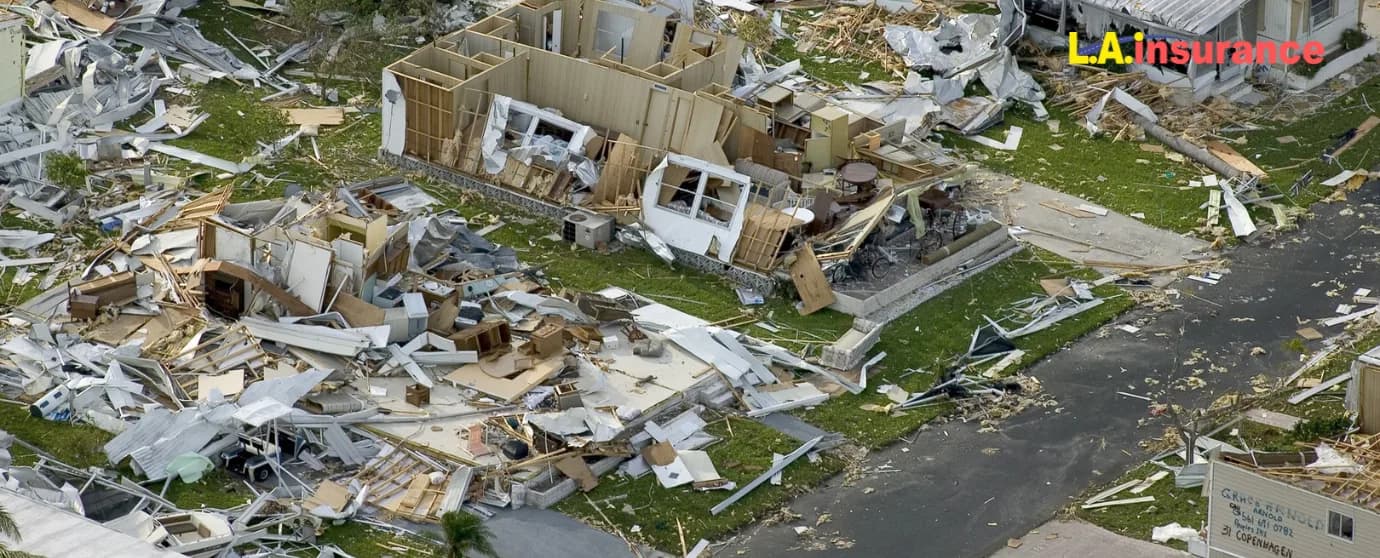
October 18, 2025
Renter's insurance
Does Renters Insurance Cover Flood?
Flooding can be devastating, causing loss of life, destruction of valuable property, and widespread infrastructure damage. According to the U.S. National Weather Service, floods cause an average of $8 billion in damage and 90 fatalities a year. FEMA says that just 1 inch of floodwater can cause roughly $25,000 of damage to your home.
And if you're a renter living in a flood-prone area, including Fort Myers, FL, coastal Georgia, coastal Louisiana, or central Texas, the financial impact can be more severe. Your personal belongings may be ruined, and your rental home could become uninhabitable.
In such a situation, you might ask, “Does my renters insurance cover flood damage?” Unfortunately, the answer is no. Standard renters insurance does not cover flood damage. Like earthquakes, floods are excluded from covered perils. To protect yourself, you'll need a separate flood insurance policy, either through the National Flood Insurance Program (NFIP), managed by FEMA, or from a private flood insurance provider.
Don’t just assume your landlord is responsible for flood damage. The truth is, they’re not. While structural damage to the building caused by flooding may be covered by your landlord or their insurance provider, your personal belongings are not. To protect your contents, you’ll need your own flood insurance coverage.
In this article, we’ll explain why standard renters insurance policies exclude flood damage, what options are available to renters, and how you can prepare for the unexpected.
Why Doesn’t Renters Insurance Cover Flood Damage?
Floods create extreme, shared risk. One big storm can damage thousands of rentals at once. It means a flood is a high-risk, large-scale natural disaster. And that scale breaks typical insurance policies, making it too costly for traditional insurance providers to cover. And that’s why your standard renters insurance usually excludes it from covered perils.
However, flood is treated differently from water damage. A typical water damage is covered by renters insurance if the origin of the water is within the rental unit. This is why your policy may cover a burst pipe or rain entering after wind tears the roof, as in this case, the source of water is within your rental building.
On the other hand, floods are classified as external water events, which means the water originates from outside the rental unit. So, if the flood is caused because of overflowing rivers or lakes, heavy rain or storm surge, coastal flooding from a hurricane, or flash floods, your renters insurance won’t cover it. Instead, you’ll need to seek help from a distinct flood insurance policy that you can purchase from NFIP or a private insurer.
It's also important to note that there’s a split in responsibility. The landlord insures the building, you insure your stuff. For this reason, contents-only flood insurance coverage exists for renters.
Related Resource: What is renters insurance and what does it cover?
So, Can I Buy Flood Insurance as a Renter?
Yes, you can and you should purchase flood insurance as a renter. It’s the only way to protect your contents against flood damage. Even if you’re not in high-risk areas, you should get insurance coverage for flood, since 32% of NFIP flood damage claims come from outside high-risk flood areas. National Flood Insurance Program (NFIP) as well as the Federal Emergency Management Agency (FEMA), encourage renters to purchase flood insurance too.
For example, Texas state even requires disclosures to remind tenants that renters insurance does not pay for flood damage, so renters consider separate coverage. However, this doesn’t mean you can buy flood insurance right before a flood hits. The NFIP spreads catastrophic losses across the country and enforces a 30-day waiting period for new policies. This rule prevents people from purchasing coverage only when rivers begin to rise.
So, if you want to buy flood insurance, consult your insurance agent or contact the National Flood Insurance Program (NFIP) or call NFIP at 877-336-2627 to discuss your needs. In case you need to insure your stuff from other risks, including theft, water damage, fire, or vandalism, you can get standard renters insurance coverage from L.A. Insurance today.
Am I Eligible for It?
Most tenants are eligible if their rental is in a community that participates in the National Insurance Program. FEMA says flood insurance is available to anyone living in one of the 22,600 participating NFIP communities.
If you rent in a high-risk flood zone and the property has a mortgage from a government-backed lender, that lender will require flood insurance. While that requirement is for the building owner, you can still purchase your own contents-only flood insurance.
So, here’s what to know to understand whether you’re eligible for flood insurance:
- Location matters.
- So, check if your city or county is one of the NFIP communities.
- Ownership doesn’t matter. You don’t need to own the building. NFIP offers flood insurance to property owners, renters, and businesses. As a renter, you can insure your personal property.
- Any flood zone qualifies. Even outside high-risk areas, you can still buy flood insurance.
Why and When Should Renters Purchase Flood Insurance?
Flood can happen anywhere. So, just because you’re not in a high-risk or flood-prone area doesn’t mean you’re safe. Heavy rain, storm surge, or a blocked plumbing system can cause costly flood damage.
You should consider buying coverage: Before moving in if your rental is near rivers, lakes, or the coast. Before storm season in areas prone to hurricanes, tornadoes, or severe weather events.
Pro Tip: Please keep in mind that NFIP policies have a 30-day waiting period. So, don’t wait until a natural disaster is on the forecast.
How to Buy Renters Flood Insurance?
It's easy to get flood insurance for rental properties. To successfully purchase coverage against flood, here are a few simple steps to follow: Step 1: Check your flood risk first. Use FEMA’s Flood Map Service Center to assess the level of flood damage risk in your area. Even if your area isn’t designated as high-risk, it’s still wise to get flood insurance because floods can happen anywhere.
- Step 2: If you're unsure whether to get flood insurance, take time to understand your coverage. We want to remind you that neither your landlord’s insurance nor standard renters insurance protects your personal belongings against flood damage.
- Step 3: Pick a program. The National Flood Insurance Program (NFIP), run by FEMA, offers contents-only limits up to $100,000 for tenants. Private flood insurance may offer higher limits, but availability varies.
- Step 4: Get a quote. You can use the NFIP’s online quote tool for flood insurance or contact your current auto insurance agent. Most quotes take less than 10 minutes. If you run into any issues, call the NFIP at (877) 336-2627. You can also find a flood insurance provider near you. More than 47 insurance companies across the U.S. offer NFIP-backed flood insurance to the public.
- Step 5: Buy and document. Choose a deductible, list belongings, and set a payment. Keep an inventory for claims.
What Does Flood Insurance Cover for Renters?
Flood Insurance for renters protects your personal property from flood-related direct physical loss. NFIP policies usually insure contents up to $100,00, along with certain valuables. However, it does not cover the building itself, which is your landlord’s responsibility.
Flood Insurance can cover the following for renters:
- Clothing, electronics, and furniture damaged by flood water
- Appliances you own, such as a washer, dryer, or microwave
- Rugs and carpets, when not permanently installed.
- Valuables such as jewelry, art, and collectibles up to $2500
- Personal items stored in a basement (with limits)
- Cleanup costs for covered flood damage
What Does Flood Insurance Not Cover for Renters?
To avoid surprises during a claim, know that flood insurance has limits and exclusions to avoid surprises during a claim.
For renters, it does not cover:
- The building’s structure, walls, or roof (as is covered by the landlord or owner)
- Vehicles and their parts Damage from mold, mildew, or moisture caused by floodwater
- Currency, precious metals, or important papers
- Damage from plumbing leaks not caused by a flood
- Additional Living Expenses (ALE) (AKA loss of use coverage)
- Pools and hot hubs
- Landscaping
Please note NFIP Flood Insurance does not provide extra living expenses for hotel stays, meals, laundry, or transportation costs if your rental space becomes uninhabitable due to flood, fire, windstorm, or other natural disasters. You need to get loss of use coverage (AKA ALE) from a renters insurance company for that. To ensure you’re fully protected, request a renters insurance quote from L.A. Insurance today.
How Much Does Flood Insurance Cost for Renters?
The cost of flood insurance for renters depends on your location, flood risk, and the amount of coverage you choose. NFIP contents-only policies can be as low as $100 to $300 per year in low-risk zones. However, premiums can increase significantly in high-risk areas.
Your deductible and coverage limits affect the price. NFIP offers up to $100,000 in contents coverage for renters. But if you choose a private insurer, they might offer you higher coverage limits, and inevitably, that will cost you more.
Since flood damage can be financially devastating, even in moderate-risk zones, many tenants find the annual cost reasonable compared to the potential loss. However, before you decide anything on insurance expenditure, we encourage you to contact NFIP directly or use their online quote tool for an accurate price. You can also get to know your cost by contacting one of the NFIP-participating insurance providers or private insurers.
How to File a Flood Damage Claim Through NFIP?
It's not that complicated to file a claim for flood damage through NFIP. And you should start your flood insurance claim as soon as it’s safe to return to your property. Waiting longer can delay the inspection, estimate, and payment process.
Here are simple steps to follow from FEMA to start and complete your flood insurance claim:
- Contact your insurer or agent. Report the flood damage right away. Give your insurance policy number and contact information. Your provider will assign an NFIP-authorized adjuster.
- Document Everything. Take clear photos and videos of damaged belongings, the basement, and every affected room. Write down details like make, model, and serial numbers for appliances or electronics. Keep samples of ruined carpet, flooring, or curtains.
- Prevent Further damage. Move undamaged items to safety. Clean up standing water and remove items that pose health risks. NFIP won’t cover damage from preventable mold.
- Meet the Adjuster. Ask to see their Flood Control Number Card. Review their damage estimate carefully before signing off.
- Start Repairs. You can begin repairs before payment but confirm with your adjuster or agent first. Make sure to keep all receipts.
- Receive Your Payment. Payouts depend on your deductible, coverage limits, and documentation. Most NFIP claims are usually settled in 4-8 weeks.
Real-Life Example of Flood Insurance Claim for Renters
On the popular social media platform Reddit, a renter posted, “My apartment flooded, and renters insurance won’t cover it”. This is because you must buy flood insurance for such protection from NFIP or other private flood insurance providers.
However, if you had the essential flood coverage, the thread advice was clear. For a successful claim, photograph everything. Make a detailed inventory with values. Email the landlord and keep copies. Ask the insurer for the next steps and to open a claim.
Tips to Prevent Flood Damage in a Rental Property
While flood insurance helps recover costs, prevention reduces the impact and hassle. As a tenant, you can take simple steps to protect your belongings and reduce risk before severe weather hits:
- Store valuables, electronics, and important documents on higher shelves or upper floors.
- Keep an updated inventory with photos for your insurance policy.
- Avoid storing personal items directly on the basement floor. Use waterproof bins if storage there is unavoidable.
- Report roof leaks, drainage problems, or plumbing issues to your landlord immediately.
- Check if your building’s sump pump works and has a backup power source.
- Know your community’s emergency evacuation.
- Install or use sandbags and barriers during heavy rain or storm alerts.
To prepare for a flood, and stay safe during and after a flood, make sure to follow the tips from the U.S. Department of Homeland Security.
Will Renters Insurance Cover Flood Damage: FAQs
Does renters insurance cover basement flooding?
Not if it’s caused by a flood. Standard renters insurance may cover water damage from a burst pipe or appliance, but flood water entering your basement requires a separate flood insurance policy.
Will my renters insurance cover flood damage to personal property?
No. Renters insurance policies exclude flood damage to personal belongings. You need dedicated flood insurance for that protection, whether through NFIP or a private insurance provider.
Are tenants responsible for flooding?
Generally, no, unless negligence caused the damage, like failing to report a severe leak. The landlord insures the structure, but you must protect your own belongings with the right insurance policies.
Does renters insurance cover plumbing repairs?
No. It falls on your landlord. Renters insurance covers water damage from sudden plumbing failures, but repairs to pipes or systems are the landlord’s responsibility.
Can I buy flood insurance as a renter in Florida?
Yes. Tenants in Florida can purchase flood insurance through NFIP or private insurers. Coastal areas are especially high risk, making separate flood coverage an important safeguard for your personal property.
Does renters insurance cover storm-related water damage?
Sometimes. If wind or tornado damage lets rain enter, renters insurance may cover the loss. Rising flood water, however, is excluded. Learn more about does renters insurance cover hurricane damage.
Can flood insurance cover items in storage?
Yes, but with limits. NFIP covers certain stored items, often with restrictions for basement storage. Always confirm with your insurance policy before assuming coverage. Learn more about does renters insurance cover storage unit.
Will renters Insurance cover me if my rental space is unlivable due to a flood?
No. Standard renters insurance does not cover loss of use if your rental becomes uninhabitable due to flood damage. That coverage applies only when the cause is a covered peril, such as a fire or certain types of water damage. NFIP policies also don’t include temporary housing for tenants. Learn more about does renters insurance cover fire damage.
Does renters insurance cover water damage if it’s not from flood?
Yes, in many cases. Renters insurance policies typically cover sudden and accidental water damage, not caused by flooding. It includes rain entering after a storm damages the roof, a burst plumbing pipe, or an overflowing appliance. However, gradual leaks or neglect are excluded.
What types of water damage are covered by standard renters' insurance, excluding flood damage?
Your renters insurance may protect against:
- Burst pipe inside the rental
- Overflowing toilet or sink
- Rain entering through a damaged roof
- Ice or snow melting and seeping indoors
- Sudden appliance hose break
- Water from a broken fire sprinkler system
Does renters insurance cover floods in Texas?
No. Renters insurance policies in Texas exclude flood damage. Renters in high-risk flood zones are encouraged to get flood insurance through the National Flood Insurance Program or a private insurance provider for contents coverage.
Tag :
Renter's insurance
best insurance








